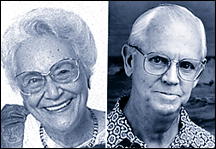Advertisement - Click to support our sponsors.


![]()
View Point
RECENT events in Hawaii have raised to a high level the awareness of issues affecting Hawaiians. Rice vs. Cayetano and other legal challenges to the Office of Hawaiian Affairs board, the federal recognition bill introduced by Sen. Dan Akaka, and the issue of sovereignty have often resulted in impassioned debate. More civility is needed
in public debateIn some cases, there has also been a high level of disrespect and bad manners displayed during these discussions. As Hawaiians, we must remember our values to preserve our culture and our people. And one important set of values relates to our manner of speech.
No one can deny that those with opinions on a topic have a fundamental right to express it. We Hawaiians cherish this right as much as anyone.
In a democracy, the right of free expression is encouraged and is essential to a careful analysis of all issues involved. But the legal right to free expression does not eliminate common courtesy and manners.
For example, at the Hawaii hearings on the Akaka bill, many who testified spoke passionately in favor of and against the legislation. But some protesters jeered, heckled and interrupted others. Members of our congressional delegation were insulted and disrespected. Elders were ignored or criticized.
The proceedings were interrupted by physical and vocal intrusions. Apparently such actions were taken in support of the argument that Hawaiians must remain sovereign, independent of American politics and values.
While such an argument may be politically defensible, the disruptive speech and actions are culturally indefensible.
Our Hawaiian and other Polynesian ancestors well understood oral advocacy; they relished debate. The professions of the Hawaiian orators and bards were often hereditary and highly illustrious.
In Mary Kawena Pukui's book of Hawaiian proverbs titled, "Olelo No'eau," there are under the index word for "speech" roughly 140 numbered entries. The overriding message embodied in these proverbs is that the spoken word has great power.
Thus, speech should be used with care in accordance with proper protocol. To do so is to adhere to Hawaiian values and, thereby, to be truly Hawaiian.
TUTU Pukui's translations of the proverbs (referred to by number below) enlighten:
We must be wise in our choice of words and actions. In this age, we often fail to adhere to our Hawaiian values and protocols in our speech.The ancient wisdom of our ancestors emphasizes that "life is in the mouth, death is in the mouth" (No. 60).
Spoken words can enliven or destroy (No. 1191). Therefore, careful speech is mandated for the tongue is the steering paddle of the mouth (No. 2449).
Gentle yet convincing oratory can bring forth desired results, as the rain stimulates the growth of the lehua blossoms (No. 1236).
Nasty words start dissension and arguments, like the bad wind Kalakala'ihi Kalaloa (No. 1080).
Angry words are equated with trash and rocks accumulated in streams (No. 1888), or with dust stirred by up a whirlwind (No. 2490).
Hurtful words sting the eyes like smoke (No. 1697).
When we don't practice civility in our discourse on the important issues of the day, we ignore our historical legacy as orators. Instead, we reduce ourselves to clucking chickens or barking dogs, befouling ourselves in our manure.
This is neither the spirit of a proud people, nor the bedrock of a noble nation. We owe much more to our ancestors, ourselves and our descendants.
Gladys A. Brandt is an Office of Hawaiian Affairs trustee.
Kenneth F. Brown is a community leader and former developer.